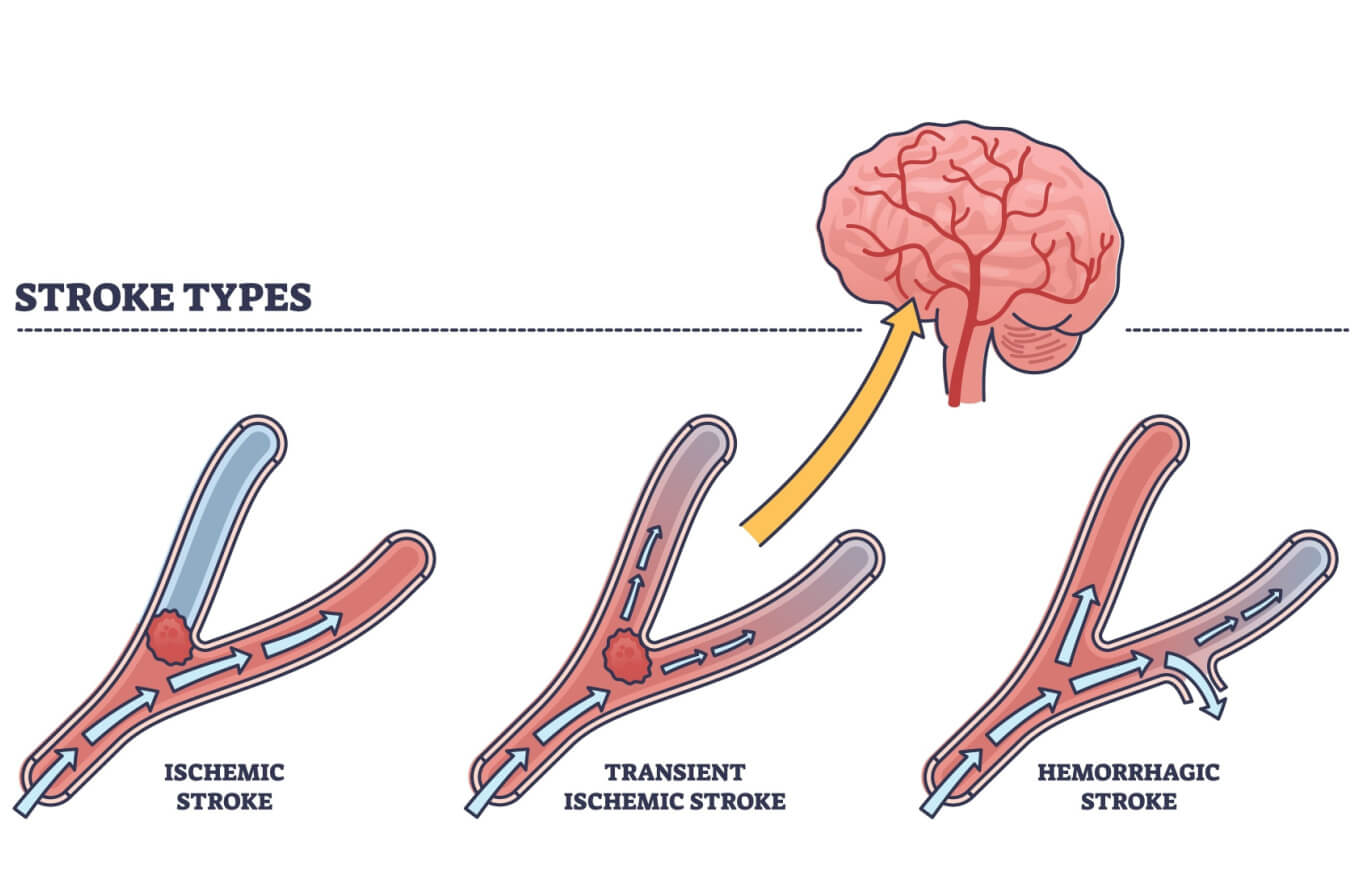Have you ever come across the phrase "tia kemp child" and felt a bit puzzled, wondering what it truly means? It's a rather interesting search term, and it seems to pop up for a few reasons. Often, people are actually looking for information about a serious health matter, a condition known as a Transient Ischemic Attack, or TIA. This can be a bit confusing, you know, because the words sound a little similar. So, in a way, this article is here to clear things up and make sure you get the right information.
It's very important to get accurate health details, especially when something sounds like it could be about a person but is actually about a medical condition. A Transient Ischemic Attack, or TIA, is something that really needs our attention. It's sometimes called a "mini-stroke," which, you know, sounds less scary, but it's still a big deal. It's a warning sign, really, that something might be going on with blood flow to the brain.
So, we're going to talk all about TIAs here. We'll look at what they are, what might cause them, and why it's so incredibly important to get help right away if you think someone is having one. This information, you see, comes from reliable sources, helping us understand this condition better and what steps to take for good health. We'll also explore why the search term "tia kemp child" might lead you to this vital health topic, so it's almost like connecting the dots.
Table of Contents
- What is "Tia Kemp Child" Actually About?
- Understanding Transient Ischemic Attack (TIA)
- Why Prompt Evaluation Matters
- Causes and Risk Factors
- Living with TIA: Support and Management
- Frequently Asked Questions About TIA
What is "Tia Kemp Child" Actually About?
When people search for "tia kemp child," it's pretty interesting, because there isn't a widely recognized public figure or celebrity named Tia Kemp whose child is associated with a medical condition or public interest in a health context. This phrase, you know, doesn't point to a specific person or a family in the public eye that would be relevant to health discussions. So, it's actually a bit of a mystery why this particular combination of words might be used.
What happens, in fact, is that the term "Tia" in "tia kemp child" is often a phonetic mishearing or a common way people might mistakenly type "TIA," which stands for Transient Ischemic Attack. This medical term, as a matter of fact, is what people are usually looking for when they type something similar. It's like a linguistic shortcut that leads to a very important health topic. So, while you might be looking for a person, you're actually finding critical health information.
So, let's be clear: there isn't a biography or personal details table for a public figure named Tia Kemp with a child that relates to the medical information we're about to discuss. The focus here is on the medical condition, TIA, which is what "My text" is all about. It's kind of like a detective story, where the clue "tia kemp child" actually leads us to the real subject: Transient Ischemic Attacks. It's important to understand this distinction, you know, to get the right information.
Understanding Transient Ischemic Attack (TIA)
A Transient Ischemic Attack, or TIA, is a short period of symptoms that are very similar to those of a stroke. It's caused by a brief blockage of blood flow to the brain. A TIA usually lasts only a few minutes, and it doesn't typically cause long-term damage, which is a key difference from a full stroke. However, it's really important to know that a TIA can be a serious warning sign, a bit like a fire alarm going off.
Think of it this way: a TIA is a temporary shortage of blood flow to the brain, the spinal cord, or the thin layer of tissue at the back of the eye, which we call the retina. This blockage, you see, might cause brief, noticeable symptoms. It's like a temporary hiccup in the brain's blood supply. Even though the symptoms go away quickly, the underlying issue that caused the TIA still needs to be found and addressed. This is why a prompt evaluation is so vital.
What Happens During a TIA?
During a TIA, a blood clot or a piece of plaque temporarily blocks an artery that carries blood to the brain. This blockage, you know, stops oxygen and nutrients from reaching a part of the brain. Because the blockage is only brief, the symptoms don't last long, and there isn't permanent brain tissue damage, which is a good thing. But, it's a very clear signal that there's a problem with the blood vessels, perhaps a narrowing or a clot risk.
It's almost like a short power outage in a specific part of your brain. The power comes back on quickly, so no lasting harm is done right then. However, the fact that the power went out at all means something is wrong with the electrical system. Similarly, a TIA tells us that there's a risk of a more serious, lasting blockage, like a full stroke, happening in the future. So, it's a very important message your body is sending you, that's for sure.
Common Signs and Symptoms
The symptoms of a TIA are the same as those of a stroke, but they appear suddenly and then disappear quickly. These signs can include sudden weakness or numbness on one side of your body, perhaps in your arm or leg. You might also experience sudden trouble speaking or understanding what others are saying, a condition called aphasia, which can impact your speech, as well as the way you write and understand both spoken and written language.
Other signs, you know, might involve sudden blurry vision or loss of sight in one eye, or even a sudden, severe headache with no known cause. You could also feel dizzy or have trouble with balance and coordination. Because these symptoms pass so quickly, some people might just brush them off, but it's incredibly important not to. Even if the symptoms are gone, it's a sign that you need immediate medical attention. It's like a fleeting shadow, but a very meaningful one.
Why Prompt Evaluation Matters
A prompt evaluation of your symptoms is absolutely vital to diagnose the cause of a Transient Ischemic Attack. It also helps your healthcare professional determine the best treatment. Waiting to see if the symptoms come back, or hoping they'll just go away for good, is a very risky approach. It's like ignoring a smoke detector because the smoke cleared for a moment.
Approximately 1 out of every 3 people who have a transient ischemic attack will have a stroke at some point. This statistic alone, you see, highlights the urgency. Getting checked out right away can help doctors find the underlying problem, whether it's narrowed arteries, blood clots, or something else. Early diagnosis and treatment can significantly reduce the risk of a full stroke, which can cause permanent brain damage and serious disabilities. It's truly a time-sensitive situation, so it's almost like a race against the clock.
Doctors might do various tests, like imaging scans of your brain and blood vessels, to figure out what caused the TIA. They'll look for things like blockages or narrowing in the carotid arteries, which are the main blood vessels in your neck that supply blood to your brain. Based on what they find, they can then recommend treatments to prevent a future, more serious event. This proactive approach is, in fact, what saves lives and prevents long-term problems.
Causes and Risk Factors
The main cause of a TIA is a temporary blockage of blood flow to a part of the brain. This blockage usually happens because of a blood clot or pieces of fatty deposits, called plaque, that break away from a blood vessel wall and travel to the brain. These clots or plaque bits can temporarily get stuck in a smaller artery in the brain, cutting off blood supply.
Several factors can increase a person's risk of having a TIA. These include high blood pressure, high cholesterol, and diabetes. Smoking is also a big risk factor, as is being overweight. Heart conditions, like atrial fibrillation (an irregular heartbeat), can also make it more likely for clots to form and travel to the brain. Age is another factor; the risk, you know, tends to go up as people get older.
Treatment of carotid artery disease, which is a common cause of TIA, usually involves lifestyle changes, medicines, and sometimes surgery. Lifestyle changes might include eating a healthier diet, getting regular exercise, and quitting smoking. Medicines could be prescribed to manage blood pressure, cholesterol, or to prevent blood clots. In some cases, a procedure to clear or widen the carotid artery might be necessary to reduce the risk of future TIAs or strokes. So, there are many ways to approach this, that's for sure.
Living with TIA: Support and Management
Living with a Transient Ischemic Attack means taking proactive steps to manage your health and prevent future, more serious events. It's a wake-up call, really, to make important lifestyle adjustments. This might involve working closely with your healthcare team to manage any underlying conditions like high blood pressure or diabetes. Following their advice on medications and regular check-ups is incredibly important.
Connecting with others who have experienced a TIA can also be a huge help. Support groups offer a place to share experiences, ask questions, and get emotional support. For instance, you can connect with others like you for support and answers to your questions in the Stroke & Cerebrovascular Diseases support group on Mayo Clinic Connect, a very helpful resource. Sharing your journey can make a real difference in how you cope and recover, you know, offering a sense of community.
It's also about adopting a heart-healthy lifestyle. This means choosing nutritious foods, staying physically active, and keeping stress levels in check. Regular exercise, for example, can improve blood flow and heart health. Making these changes isn't always easy, but the long-term benefits for your brain and overall well-being are immense. It's a continuous effort, but one that's certainly worth it.
Frequently Asked Questions About TIA
People often have many questions about Transient Ischemic Attacks, especially when they hear terms like "mini-stroke." Here are some common inquiries that might come up, perhaps even leading to searches like "tia kemp child" due to general health concerns.
What's the difference between a mini-stroke and a normal stroke?
When people use the term "mini accident cerebrovascular," or mini-stroke, they are usually talking about a TIA. The main difference is that a TIA is a temporary blockage of blood flow, and the symptoms usually last only a few minutes, causing no permanent brain damage. A normal stroke, on the other hand, involves a longer-lasting blockage that causes brain tissue to die, leading to permanent neurological damage. So, while symptoms are similar, the outcome is quite different, that's for sure.
Can a TIA affect communication abilities?
Yes, a TIA can indeed impact your communication. It can cause temporary aphasia, which is a disorder that affects how you communicate. It can impact your speech, as well as the way you write and understand both spoken and written language. Because the blockage is temporary, these communication difficulties usually resolve quickly. However, any sudden change in communication should be treated as an emergency, as it could be a sign of a TIA or a stroke.
Is a TIA always a warning sign for a future stroke?
A TIA is very often a warning sign. Approximately 1 out of every 3 people who have a transient ischemic attack will have a stroke at some point. This makes it a critical event that should not be ignored. It's your body telling you that there's an underlying issue with your blood vessels or heart that needs immediate attention to prevent a more serious event. So, it's definitely a signal to take action, you know, without delay.
If you or someone you know experiences symptoms of a TIA, even if they pass quickly, seek emergency medical care right away. For more detailed information about Transient Ischemic Attacks and related conditions, you can explore resources from reputable health organizations like the American Stroke Association. Learn more about Transient Ischemic Attacks on our site, and find support by connecting with others on this page Living with TIA.



Detail Author:
- Name : Ms. Jazmin Bosco
- Username : legros.gerda
- Email : raina07@treutel.info
- Birthdate : 1990-01-14
- Address : 130 Howell Underpass Suite 365 Cruickshankview, MA 82427-4674
- Phone : 516-223-8972
- Company : Homenick, Flatley and Padberg
- Job : Loan Counselor
- Bio : Quia quidem natus aspernatur facere. Provident doloribus nostrum est itaque libero qui quam provident.
Socials
instagram:
- url : https://instagram.com/rosie_xx
- username : rosie_xx
- bio : At eligendi aut illo vero. Eos facere sint aliquam dolores omnis. Sint dolor quia ipsa deserunt.
- followers : 6299
- following : 2296
facebook:
- url : https://facebook.com/rosie.kuhn
- username : rosie.kuhn
- bio : Nulla debitis exercitationem dolorum quidem distinctio omnis voluptate eius.
- followers : 5839
- following : 2522
linkedin:
- url : https://linkedin.com/in/rkuhn
- username : rkuhn
- bio : In magni non doloremque libero illum sit et.
- followers : 153
- following : 2984

